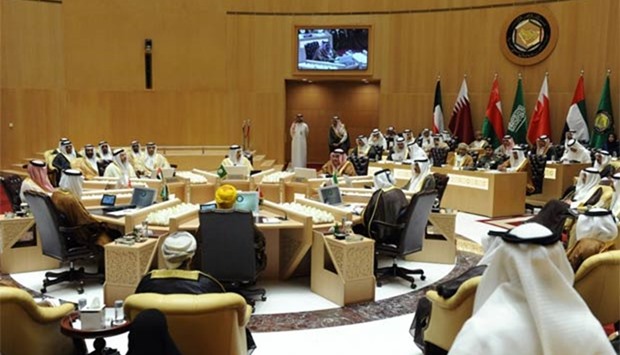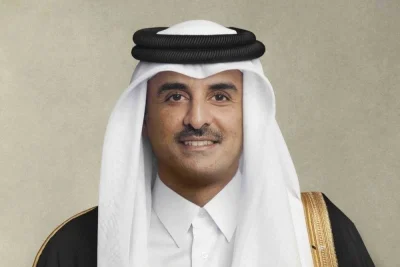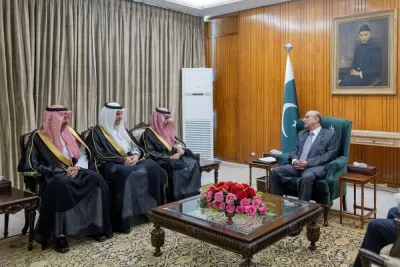US President Donald Trump's visit to Saudi Arabia this weekend will reinforce the "strategic partnership" between Riyadh and Washington and boost their joint fight against Islamist militants, the kingdom's foreign minister said on Thursday.
Saudi Arabia has been enthusiastic about Trump's arrival at the White House after seeing his predecessor Barack Obama as too soft on its arch-foe Iran and cool towards Washington's bilateral relationship with Riyadh that is a mainstay of the Middle East's security balance.Trump's visit to Riyadh, the first stop on his maiden international trip since taking office in January, will include concluding political and commercial agreements with Saudi Arabia, Foreign Minister Adel al-Jubeir said.
"It will bolster the strategic partnership between the two countries," he told a news conference.
"Saudi Arabia agrees with the US administration's view in relation to the role of the United States in the world and in relation to uprooting terrorism," he added, referring to the hardline Islamic State group and al Qaeda.
Jubeir said Riyadh and Washington were discussing several "initiatives" related to arms sales, economic and security cooperation and tackling terrorism.
"Several agreements will be signed, whether political agreements... and big economic agreements," he said.
Riyadh backs Trump's efforts to resolve the Israeli-Palestinian conflict and also agrees with Washington on "confronting Iran's aggressive policies and its support for terrorism", he said.
Saudi Arabia will be seeking assurances that the Trump administration will continue its harsher tone towards Iran and keep up pressure, through both rhetoric and action, to stop what Riyadh sees as Tehran's destabilizing activities in the region.
The Trump administration has heavily criticised the West's nuclear agreement with Iran that was backed by Obama. Senior administration officials have also criticised Iran's support for Syrian President Bashar al-Assad, its ballistic missile activities and backing for militant groups in the region.
Apart from Saudi officials, Trump will also meet leaders of the six-nation Gulf Cooperation Council (GCC) and have lunch with leaders of more than 50 Muslim countries in Riyadh.
Saudi Arabia will use the opportunity of this gathering to increase cooperation with countries opposing Islamic State in Syria and Iraq, Jubeir said.
Jubeir said Saudi Arabia was not concerned about sharing intelligence with the United States, despite a storm over reports that Trump had discussed intelligence with Russia during a White House meeting last week.
"We share a very, very large amount of intelligence with the United States and vice versa," Jubeir said. "We have had no hesitation about doing so and we will not have any hesitation about continuing to do so."



